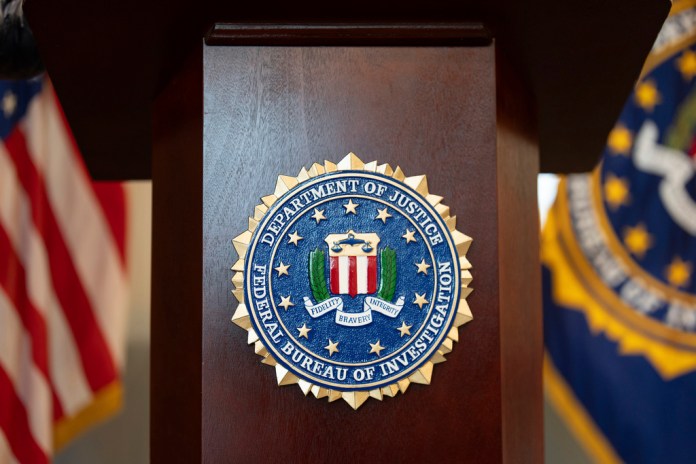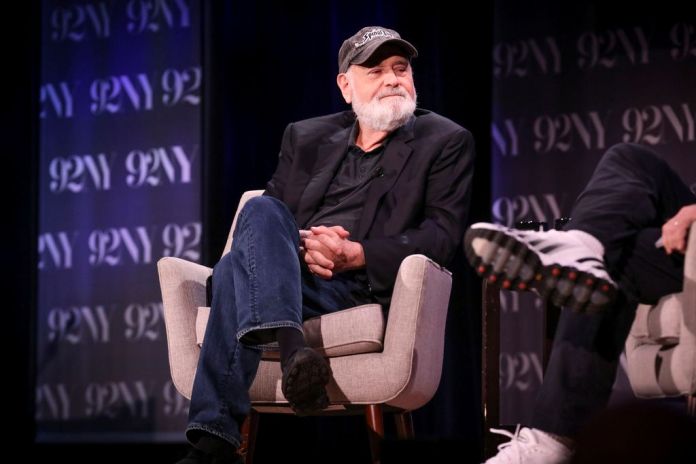Nathan Hochman’s vision of LA includes major course correction
Nathan Hochman, the newly elected District Attorney of Los Angeles County, is focusing on restoring law and order following a series of crises, including wildfires and issues related to crime and immigration. Hochman, who took office less than two months ago, aims to distance himself from the policies of his predecessor, George gascón, who faced criticism for his progressive approach to criminal justice. In contrast, Hochman has embraced a more centrist and tough-on-crime stance.
Key aspects of Hochman’s plan include reassessing sentencing policies to hold violent and repeat offenders accountable, reintroducing sentencing enhancements for gang-related crimes, and directly addressing crime surges linked to recent disasters. He advocates for a more individualized approach to prosecution, ensuring that each case is assessed based on its specifics.
Hochman has also expressed his intention to work with federal authorities regarding immigration enforcement in connection to convicted individuals, while maintaining his commitment to protecting lawful protests. Ultimately, his management aims to rebalance justice while ensuring public safety, responding to the clear voter demand for change after Gascón’s policies created widespread discontent among the community and law enforcement.
Nathan Hochman’s vision of law and order in LA includes major course correction
EXCLUSIVE — Los Angeles County District Attorney Nathan Hochman has been busy. He was sworn into office less than two months ago and has responded to one catastrophic crisis after another ever since.
At the top of the list are the still-burning wildfires that have displaced thousands — his sister lost her home in the Palisades fire — caused billions in damages, and created ripe conditions for looters, burglars, and other fraudsters to exploit victims.
Hochman has also fielded questions about whether his office will assist federal authorities with deportation and other illegal immigration crackdowns initiated by the Trump administration. He has a mid-March deadline hanging over him to decide whether he will back his predecessor’s resentencing push for brothers Lyle and Erik Menendez, who were convicted of killing their parents in the 1990s. And then there’s the matter he was elected on: public safety.
“Public safety was the crossover issue and still is,” Hochman told the Washington Examiner in a wide-ranging interview.
A ‘course correction’ in LA
Los Angeles County voters sent a clear message in November 2024 when they ousted his predecessor, George Gascón.
Gascón, bankrolled by George Soros, swept into office in 2020 on the promise of reforms to the criminal justice system. The embattled “godfather of progressive prosecutors” left office facing intense backlash over his handling of public safety issues.
For voters, four years of progressive policies had failed them, sowed distrust, and at times made them feel as though the district attorney’s office turned its back on the victims. Prosecutors complained that the former district attorney kneecapped their ability to go after lawbreakers.
Hochman, a former Republican who ran as an independent and centrist, tapped into the frustration during his run for office. He promised to restore balance to the criminal justice system and vowed to do away with many of Gascón’s policies that he claimed were way too lenient on violent and repeat offenders.
The voters agreed.
In November, Hochman, who served as former President George W. Bush’s assistant attorney general overseeing the tax division, beat Gascón by more than 20 points in the deep-blue county.
“Voters are always course correctors,” said Dan Schnur, a former adviser to Republican politicians in California who now teaches political communications at the University of Southern California. “They’re always adjusting and readjusting, trying to calibrate policy exactly the way they want it. It’s not uncommon for them to try to pull back on a reform effort that they think might be going too far.”
‘Rebalancing’ justice
Since becoming district attorney, Hochman, a father of three children in their 20s, has emphasized a “hard-middle” approach that requires prosecutors to look at each case individually.
This involves examining a person’s background, the crime committed, and the impact on the victim to determine who the “true threats” are to public safety. And just because a crime is nonviolent or is committed by a first-time offender does not mean he or she will get off scot-free as was routine under Gascón.
“Law enforcement understands now that if they build up good cases, they are not going to be rejected because of the political agenda of the DA,” Hochman said. “Victim groups understand that we’re back to supporting them. The public understands that we need a rebalancing, that we haven’t done a drastic shift from one end of the pendulum to the other, and that we are back to figuring out the correct balance that prioritizes public safety but also seeks to introduce real and effective criminal justice reform.”
Two examples of this are Hochman’s response to the wildfires — he has warned he will go after looters, arsonists, price gougers, and fraudsters to the fullest extent of the law — and the release of two people who were wrongly convicted of murder and spent the past 17 years in prison.
“I made a decision within two days of getting the presentation that we had lost faith in the convictions and they needed to get out of prison,” he said. “We moved heaven and earth, because the minute you think someone shouldn’t be in prison and is in prison, they need to get out.”
Hochman said he was told it was “virtually impossible” to get Charlotte Pleytez and Lombardo Palacios out before Christmas but that he was not taking “no” for an answer. His office sent its own investigators to pick up the pair from two different prisons in the middle of California and bring them to court, where his prosecutors made arguments in favor of their Dec. 20, 2024, release.
“Justice has many forms, and the prosecution always wins when justice is done,” he said. “Very often for a prosecutor, that is arresting someone, convicting them, sentencing them, but on occasion, it’s recognizing that mistakes have been made and that if we no longer have faith in a conviction, we have to get them out of prison as fast as we can.”
Return of sentencing enhancements
Another change Hochman has made in office is giving prosecutors the latitude to seek sentencing enhancements, a tool used to increase the penalty for a crime by adding time to a base sentence. Hochman said his office would specifically go after lawbreakers linked to gangs and crimes involving guns. A gang sentencing enhancement, which is used against someone who has committed a crime for the benefit of a gang, could add an additional 10 years to a prison term.
The enhancements were put in place to cripple the power of street gangs who terrorized their communities. The idea was that if they knew they would get more time tacked on to a sentence for being associated with a gang, it might deter them.
“It was working,” Hochman said. “Gangs had been receding in their power for years until my predecessor showed up and eliminated the ability of his office to file these enhancements. Not shockingly, the power of gangs grew. Their ability to recruit members increased.”
Under Gascón, sentencing enhancements fell to almost zero. He argued that they unfairly targeted men of color and those in poorer communities.
Warrants, protests, and Trump’s immigration policies
Hochman has also been in the spotlight for how he will handle President Donald Trump’s immigration policies in Los Angeles, a sanctuary city. He told the Washington Examiner it’s a lot more cut and dry than people think and said the state sanctuary law has always had carve-outs for certain violent crimes.
“Already built into the legislation is that if someone is convicted of a violent, serious crime, there is no prohibition in having local authorities reach out to federal immigration authorities and coordinate with them in connection with those criminal defendants who violate those laws,” he said. “Second thing is that if a federal immigration authority gets a warrant for a particular individual, that’s already baked into the legislation, everyone will honor a warrant. I’ll honor warrants.”
Where it gets tricky is when there are crimes that are not violent or are misdemeanors.
For example, if someone steals $200 from a convenience store and is convicted of a misdemeanor, will the local authorities notify the feds and honor an informal hold in those situations?
In a sanctuary state, no.
But Hochman said the “practical impact and the way that it’s carried out shows you the legislation will not necessarily slow down federal immigration officials.”
When a case is charged, it is publicly known information, which means federal immigration officials know too. It is conceivable that they could use investigative tools at their disposal to cross-reference whether a particular person cited for a crime is undocumented. If they do, it would be relatively easy to get a warrant to then have federal immigration officials pick up that person in whatever jail or prison is holding them.
“I don’t want to speak of the capabilities of federal immigration officials, whether or not they are able to do this,” Hochman said. “I don’t know one way or the other, but I know the information that I am discussing is publicly available, and if they want that information and want to turn it into a warrant, they can, and once there is a warrant, then it gets honored.”
On the flip side, Hochman told the Washington Examiner that if people upset with the president’s policies want to take to the streets and protest “loudly and often and in a lawful manner,” it is their First Amendment right, and “I’ll protect it.”
“I’ll make sure those words are protected,” he said. “I am very much hoping that it doesn’t turn into illegal conduct because I don’t want any confusion about the notion that illegal conduct won’t be prosecuted because it will.”
Hochman’s family values
Hochman, a no-nonsense, lifelong Angelino, credits his father, Bruce Hochman, for his work ethic and being able to juggle so many high-profile cases with ease. The elder Hochman was an Air Force veteran and among the first graduating class of UCLA School of Law and the first to pass the California State Bar Exam.
“He ended up taking the Bar early, passed the Bar, and went right into the Air Force and then he was a lawyer for 50 years — one of the nation’s foremost tax lawyers,” Hochman said.
Hochman followed his father’s love of law. After graduating magna cum laude from Brown University, he earned his law degree from Stanford Law School. He also served as an assistant U.S. attorney for the Central District of California, where he spearheaded the Los Angeles Fraud Task Force that was formed following the 1994 Northridge earthquake. Following the earthquake came the fires, floods, and riots that landed LA on the national news almost every day.
“There were billions of dollars in federal aid that came into Los Angeles,” Hochman said. “It was being ripped off at every different level. Money wasn’t getting to the people who needed it, and I organized 15 local and state and federal agencies to get together, and we brought 70 prosecutions in six months and recovered $25 million.”
Hochman also launched a program that granted amnesty to people who had fraudulently taken the money but gave it back. The program recovered another $25 million.
Locking up Snipes
When Hochman headed up the federal tax division under Bush, he participated in the prosecution of actor Wesley Snipes, the star of the Blade trilogy.
Hochman argued that Snipes was a “disciple” of the tax defiance movement who understood that not paying income taxes over several years was a crime.
“He ended up getting three years in jail, and it was sort of touch-and-go whether or not the judge would give him a sentence commensurate with the fact that he didn’t pay tax on $38 million,” he said.
As for his time as a defense attorney, Hochman said, “Many of my best successes are ones you will never hear about because we convinced the government not to proceed on the case.”
" Conservative News Daily does not always share or support the views and opinions expressed here; they are just those of the writer."




